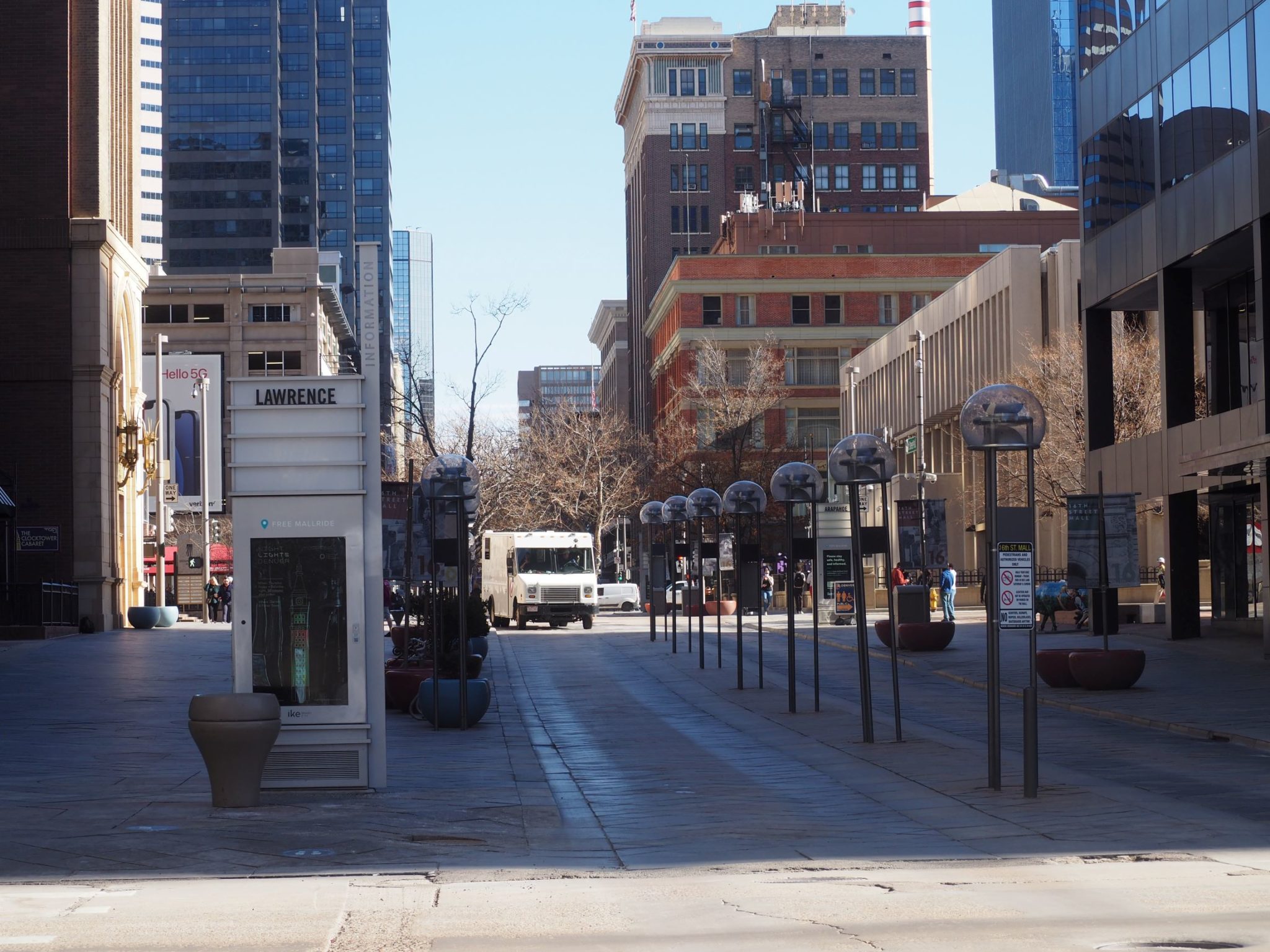The proposed contract with the design-build firm the city has selected to tackle a long-planned revamp of the 16th Street Mall has come in at a cost of $149 million.
A Denver City Council committee was briefed Tuesday on the contract with PCL Construction Services, which has its U.S. headquarters in Denver.
Provided the contract is approved by the council in the coming weeks, the contract period will begin in April, and some construction work related to utilities could begin toward the end of the year, according to Travis Bogan, director of special projects for the city’s Department of Transportation and Infrastructure. But the major construction efforts aren’t expected to physically begin until the second quarter of next year.
The 16th Street Mall is closed to vehicles with the exception of buses. It first opened in 1982, and was originally designed to have a 30-year life, according to the city. The planned changes pertain to the stretch from Broadway in the south to Market Street in the north.
The maximum construction duration per block is expected to be 18 months. The contract with PCL is set to run until the end of 2024.
The city is setting aside funds to assist businesses negatively affected by the changes, including $300,000 this year. The restaurants and retail shops along the corridor are already among the hardest hit by the pandemic, which has sent many office workers home and shuttered the events that often bring crowds downtown.
The revamp has been discussed for more than a decade, with a mall steering committee convening as far back as 2010 to discuss changes.
“It’s truly the backbone of downtown,” said Eulois Cleckley, executive director of the Department of Transportation and Infrastructure.
The plans call for replacement of the entire granite streetscape, with an improved drainage system and more surface friction for pedestrian safety. There will also be wider sidewalks, more trees and improvements to cross streets, as well as new “amenity zones for increased safety and activation opportunities,” including structures to provide additional shade.
Bogan told the council committee Tuesday that the city issued a request for qualifications in January 2019, which resulted in three groups — PCL, Omaha-based Kiewit Corp. and a joint venture between Minnesota-based Ames Construction and San Francisco-based Swinerton — being invited in 2020 to submit a proposal, although Kiewit ultimately declined to do so.
The proposed contract with the design-build firm the city has selected to tackle a long-planned revamp of the 16th Street Mall has come in at a cost of $149 million.
A Denver City Council committee was briefed Tuesday on the contract with PCL Construction Services, which has its U.S. headquarters in Denver.
Provided the contract is approved by the council in the coming weeks, the contract period will begin in April, and some construction work related to utilities could begin toward the end of the year, according to Travis Bogan, director of special projects for the city’s Department of Transportation and Infrastructure. But the major construction efforts aren’t expected to physically begin until the second quarter of next year.
The 16th Street Mall is closed to vehicles with the exception of buses. It first opened in 1982, and was originally designed to have a 30-year life, according to the city. The planned changes pertain to the stretch from Broadway in the south to Market Street in the north.
The maximum construction duration per block is expected to be 18 months. The contract with PCL is set to run until the end of 2024.
The city is setting aside funds to assist businesses negatively affected by the changes, including $300,000 this year. The restaurants and retail shops along the corridor are already among the hardest hit by the pandemic, which has sent many office workers home and shuttered the events that often bring crowds downtown.
The revamp has been discussed for more than a decade, with a mall steering committee convening as far back as 2010 to discuss changes.
“It’s truly the backbone of downtown,” said Eulois Cleckley, executive director of the Department of Transportation and Infrastructure.
The plans call for replacement of the entire granite streetscape, with an improved drainage system and more surface friction for pedestrian safety. There will also be wider sidewalks, more trees and improvements to cross streets, as well as new “amenity zones for increased safety and activation opportunities,” including structures to provide additional shade.
Bogan told the council committee Tuesday that the city issued a request for qualifications in January 2019, which resulted in three groups — PCL, Omaha-based Kiewit Corp. and a joint venture between Minnesota-based Ames Construction and San Francisco-based Swinerton — being invited in 2020 to submit a proposal, although Kiewit ultimately declined to do so.




Leave a Reply